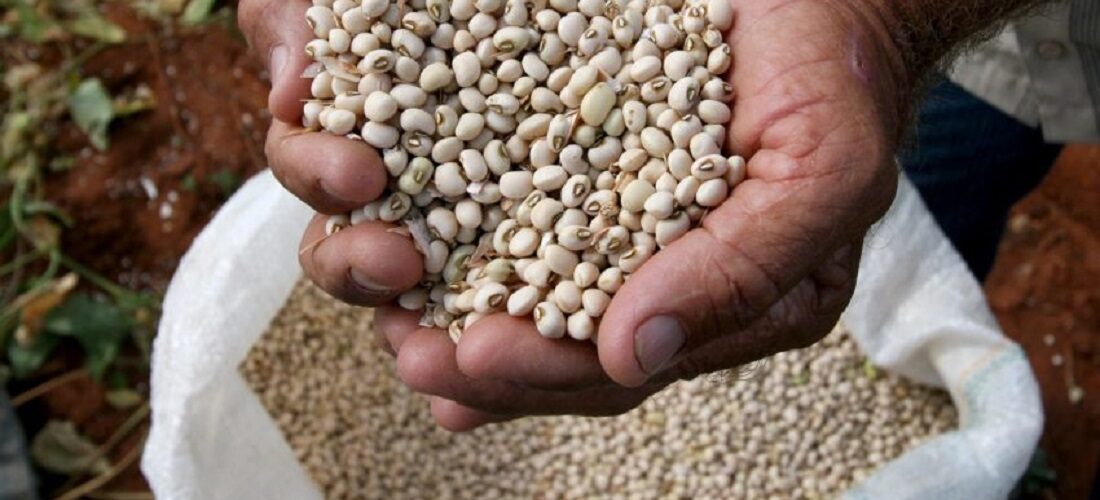
India signs agreements with Brazil and Argentina for importing pulses
Apr, 16, 2024 Posted by Gabriel MalheirosWeek 202416
India is broadening its import of pulses to maintain stability in domestic prices, as revealed by two officials familiar with the situation after numerous rounds of negotiations. Long-term agreements have been reached with Brazil and Argentina for this purpose.
As the world’s largest consumer and producer of pulses, India is anticipated to import more than 20,000 tonnes of black gram (urad) from Brazil for the first time. Additionally, unspecified quantities of pigeon pea (tur) will be sourced from Argentina to fulfil domestic requirements.
According to official data, retail inflation in pulses remains elevated, albeit decelerating to 17.71% in March from a previous increase of 18.9% in February. The Reserve Bank of India’s monetary policy committee, maintaining the repurchase rate unchanged, emphasised on April 6 how food price pressures have been impeding the ongoing disinflation process. These pressures present challenges for achieving the target inflation rate of 4%.
The agriculture ministry estimates that India’s pulse production decreased to 23.4 million tonnes in 2023-24 from 26.1 million tonnes in the previous year.
“One of the officials highlighted that affordability and availability are significant factors,” according to statements made during discussions with South American nations. These nations possess conducive weather conditions for growing pulse varieties and have relatively low domestic requirements.
Pulses serve as the primary source of protein for many Indians. Despite a central government campaign to bolster local production, total output has surged by 37% since 2015-16, as per official figures. This increase has helped mitigate the need for costly imports. However, the country continues to rely on foreign shipments to fulfill its overall demand.
India’s black gram requirement is exclusively met through imports from Myanmar under a memorandum of understanding between the two nations. However, import disruptions from the conflict-ridden neighbouring country last year impacted local prices.
“A second official, who chose not to be named, stated that long-term agreements with affordable alternative suppliers would greatly enhance supply management, serving as a hedge against price volatility.”
In 2023, India imported nearly 3 million tonnes of pulses, primarily lentils, black gram, and pigeon pea from various countries including Canada, Australia, Mozambique, Tanzania, Sudan, Malawi, and Myanmar.
Escalating protein prices can significantly impact household expenses. In anticipation of a general election, the federal government has implemented a range of measures to mitigate prices and ensure the affordability of essential food items. Notably, import duties for three pulse varieties – pigeon pea, black gram, and lentil (masoor) – have been waived off until March 2025 to bolster local supplies.
In 2022-23, pulse output reached 27.5 million tonnes, slightly surpassing the previous year’s production of 27.3 million tonnes. A campaign distributing improved seeds elevated pulse productivity by 34.8% from 2018-19 to 2021-22, according to agriculture ministry data.
However, these gains are susceptible to weather uncertainties, which can prompt price spikes if output declines. Pigeon pea and black gram prices have been elevated due to last year’s erratic monsoon in Karnataka, Andhra Pradesh, and Telangana.
Abhishek Agrawal, an analyst with Comtrade, anticipates continued inflationary pressure from pulses due to lower output, suggesting potential government interventions such as imposing stock limits.
-
Feb, 17, 2023
0
Top carriers vow to make all bills of lading electronic by 2030
-
Other Cargo
Dec, 09, 2022
0
Cachaça export value in 2022 exceeds the previous twelve-year high
-
Blog News (ENG)
Feb, 28, 2024
0
Port of Salvador shows steady growth in Bahia state throughput in ten years
-
Grains
Sep, 13, 2019
0
China opens soybean meal market to Argentina in ‘historic’ deal



